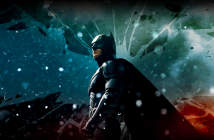
As spring gives way to summer, the theaters will begin filling with children, parents, and other general moviegoers with more time to fill and more choices from the studios. Indeed, since the turn of the century, an average of 190 movies per year are released during the summer season (defined as the first weekend in May through Labor Day). And in fact, each of the last five years has seen the release of over 200 movies during this period. While those releases often include everything from teen and adult comedies, to family-oriented animation and your occasional YA drama, the summer is known for the explosions, heroics, and stunts of big-budget action filmmaking. We at Next Projection asked our writing team what movie typifies the summer release season for them as a primer to this upcoming summer at the multiplex.
Mad Max: Fury Road (2015)
No hyperbole is required to posit Fury Road, George Miller’s propulsive reboot of his (somewhat dubiously) revered Mad Max series, as the greatest action film of all time. It’s certainly an unparalleled rendition of uncontrollable, volatile, all-consuming insanity; the exuberant colour scheme and richly detailed world-building serve to capture the colossal fall-out of a world gone mad, from which its characters have borne their feral existence. One, as Max puts it, where humanity has regressed to a single instinct: survive.
A continuation of sorts to the original trilogy, Fury Road finds Max plagued by guilt and an increasingly liberal interpretation of reality, wandering the post-apocalyptic desert in search of any higher purpose to be gleamed from this barren, faintly dream-like wasteland. Taken prisoner by disfigured warlord Immortan Joe’s personal death cult/unsubtle conservatism metaphor, Max is cast into a deeply personal conquest he, at first, wants no part of. Events involving blood transfusion and intimate feelings towards a steering wheel (don’t ask) transpire to cross Max’s path with that of Furiosa, Joe’s former commander with a cargo of sex slaves and an unholy grudge to bear. So begins a relentlessly entertaining and emotionally charged two-hour car chase, where characters are defined by actions and story is delivered through the inherently visual cinematic form at its very best.
Tom Hardy plays Max with exceptional scowling prowess, his innate ability to shift from view enabling Miller to reveal his true intentions. Not only is Fury Road a seamlessly constructed action masterpiece, it’s a timely indictment of destructive patriarchal social structures, told in searingly kinetic sequences of pure craftsmanship. In Furiosa’s quest to liberate her female companions from the grasp of gun-toting, devoutly superstitious death merchants, Miller crafts a deceptively profound feminist icon.
Mad Mad: Fury Road is everything blockbuster cinema can, and should, represent. It boasts more than enough filmmaking bravura and thematic complexity to ensure it a long-lasting position as the essential summer movie for our times. GREG HILL-TURNER

Batman (1989)
I was 8 years old when Tim Burton’s Batman burst onto the screen in the summer of 1989 and I had no idea what to expect. I, like many, grew up with a Batman who was a funny, campy character who made puns and had everything in his Batcave labeled, each with ‘bat’ prefixed on it. Then Burton applied his dark aesthetic and hewed Batman on film closer to what was in the comics post-1986 (when Frank Miller introduced the darkest version of Batman to that point in the graphic novel The Dark Knight Returns, followed by Batman: Year One which set the monthly books on the same path). I’d been reading the Batman comics for a little while by that point, so I knew Adam West’s Batman wasn’t the true nature of the character (though at the time, that is exactly what Batman was like, I’d come to know later) and I loved the film.
Burton’s casting of Michael Keaton was a controversial one. Keaton was best known for comedies and fans asked ‘How can Mr. Mom be Batman?’. Their fears were assuaged and for a generation, Keaton was the definitive Batman. Adding the (then) two-time Oscar© winner Jack Nicholson as The Joker, playing up the fact he was an insane murderer and not just a thief with white make-up over his mustache, gave people a sense of fear that they weren’t accustomed to from Batman.
Batman set the bar for comic book adaptations and for Batman films, considering it took 16 years for another director to get the character as right as Burton and co. did here. Sure, now looking back on it, the film does generate some nostalgia, but it holds up on its own merits apart from that. It’s a film that you can watch through the eyes of a kid marveling at Batman doing all the things that make him cool and through the eyes of an adult and admire the craft of the production design, the nuance of the acting and the choices Burton made in creating one of his best films. DOUG HELLER

Jurassic Park (1993)
When discussing seminal summer blockbusters, where better to look than 1993’s Jurassic Park. Directed by Steven Spielberg, the man who quite literally invented the box-office moniker with Jaws in 1975, his Michael Crichton adaptation became at the time of release the highest grossing film of all time (a title which it held for over four years). Eventually grossing over a billion dollars worldwide, Jurassic Park spurred on two mixedly-received sequels, as well as the critically-abhorrent (but no less successful in profits) Jurassic World just last summer.
Three tired attempts to recreate the magic of Spielberg’s original creation have largely been in vain, yet they’ve by no means diminished the craftsmanship or legacy of one of Hollywood’s greatest productions. In an age (of Ultron) where adding “in post” is as common in filmmaking as a script and a camera, clean edges and smooth colors often begin to blur the lines of real and generated action, lowering the stakes of whatever planet or mountain or sphere-thing is nearing its destruction during the final act. With this in mind, Jurassic Park would be a relative outsider compared to the fare of today, with a refreshing mix of animatronics as well as digitally-rendered king lizards.
And yet somehow, almost 23 years after the film’s initial release, Jurassic Park still roars with more authenticity and earnestness than anything we’ve seen since. Besides Lex’s fascination with an “interactive CD-ROM”, one could hardly place a date on a movie now old enough to have a college degree. From Spielberg’s typical perfectly-structured narrative to the philosophical musings bounced between the carefully characterized menagerie of scientists, Jurassic Park is the ideal action movie, fraught with the sights, sounds, and warmth desired in a summer blockbuster. RYAN J GIMARC
Edge of Tomorrow (2014)
Edge of Tomorrow is the type of action blockbuster that delivers on the promises of so many action films that lose themselves under the weight of the visual spectacle and forget that you can’t tell a story through set pieces and special effects alone. It leverages humor and nostalgia to offer something easily digestible that is both fresh and leans heavily on visual and thematic tropes from the action films of yesteryear. This heavy reliance on tropes and nostalgic expectation creates a fun viewing experience that doesn’t necessarily present any new ideas, but repackages old ideas to create something that dazzles as it keeps our attention through rehashed but palatable storytelling techniques.
Adapted from the Japanese light novel All You Need is Kill (2004) and shaped by manga storytelling conventions, its characters are one dimensional archetypes that only evolve within the context of the Hero’s Journey, but the over the top action and comedic elements combine to deliver a compelling story. Tired genre clichés are the heart and soul of the story as the hopelessly outmatched, ragtag multiethnic group of roughnecks go up against a ruthless alien enemy that lacks any human characteristics that might present an uncomfortable moral dilemma upon their extermination. It’s a tradition as old as science fiction itself, and humanity gets the classic consolation prize that though we will all learn to work together in harmony despite racial and gender differences, we’ll only be able to leverage that harmony for the purposes of destruction.
The use of video game dynamics as a plot device is what separates this film from its action ancestors, and it grants the story the ability to set up seemingly impossible learning curves that the hero can overcome by dying as many times as it takes to get it right, always safely returned to the latest checkpoint with a new lesson on how to overcome the next obstacle. Cruise’s Bill Cage is treated by his brothers in arms with the same disdain as a new player who jumped feet first into multiplayer without properly learning the game first. A montage sequence of the “training level” reminds video game players to pay attention during the seemingly inconsequential levels because there is always a valuable lesson to be gained even when the stakes aren’t high.
Edge of Tomorrow is a fun summer action flick that gets enough right to make it entertaining and by smashing together a few video game elements, manga sensibilities, and the action films of yesterday (complete with Bill Paxton) to create a cinematic experience that teeters on the edge of innovativeness while always remaining fun. MATTHEW BLEVINS
Big Daddy (1999)
You used to go to a Sandler movie for legitimate entertainment, not just a chance to see a dumpster fire. It was a time when Sandler showed an understanding of his skillset and Happy Madison Productions was a mere glimmer in his eye. Happy Gilmore and Billy Madison were drunk, mouth noise spouting cartoons that knew just how to steer into the absurd for comedic effect. But Sandler seemed to recognize the very limitations of this more grotesque and over-the-top world and did something different with The Wedding Singer, something with heart. Maybe this would be Sandler’s modus operandi going forward. He’d throw us some buffoonery and counter with catharsis.
Big Daddy gives us the silly side that we’ve come to expect but also brings in some genuine and heartfelt emotionality (if you don’t feel something as Julian is taken away in the courtroom, you’re dead inside). It didn’t get great reviews, as is expected for a Sandler film (although its 40% Tomatometer is positively dazzling when compared to his recent output). It was however, a hit at the box office, landing the number one spot in its first weekend and remaining in the weekend top 10 for six weeks (ultimately it took home over $160 million domestically). Like the film’s very subject matter, Big Daddy was Adam Sandler entering cinematic adulthood. Unfortunately, where his Sonny Koufax chose to embrace responsibility and grow, Sandler did the opposite, retreating into humor so childish as to be rendered almost completely unfunny. Sandler’s cinematic output seemed catered to my own embrace of film. He talked to shampoos when I still found this funny and similarly as I matured so seemingly did his own tastes. Big Daddy was and is a balanced, accessible, and funny Adam Sandler. I miss that. DEREK DESKINS
Total Recall (1990)
Though acting isn’t the main reason this film is good, it’s impossible not to commend Arnold Schwarzenegger for his portrayal of Quaid/Hauser. The character he portrays is completely insane and off the charts, and it’s a genuine surprise to see Schwarzenegger handle it so well. Personally, I think it’s my favorite performance from him. For a guy who’s predominantly associated with heavy fighting and action sequences, Total Recall takes him out of his comfort zone, and allows him to show his range as an actor. Instead of just engaging in brawls the entire film, Schwarzenegger portrays a character with some kind of depth.
The premise itself, too, is amazing. There’s rarely any films nowadays which tackle a concept so complicated as this one. Amnesia is always a hard concept to tackle, as the scenarios may become redundant over time, but never for a second do you get tired of Total Recall. It’s action packed, and even slightly humorous, which was very surprising as well. Who would’ve thought this film would possess so much humor? I sure as hell didn’t. It’s good to take a break from the limbs flying, the alien mutants, and the badass nature of Schwarzenegger with a few cheesy one liners, which lighten the mood of the film. For a film like this, sitting at 113 minutes, I think it’s essential to not be completely absorbed into the action, because it may seem tedious.
Under the amazing direction of Paul Verhoeven, Total Recall is a cult classic, and an absolute gem in the Science Fiction genre. It’s fun, entertaining, smart, and humorous all in one film. Sure, the film lacks a bit on its screenplay, and occasionally the performances are humorous, but Total Recall is fantastic for a reason of its own that can’t be pinpointed. It’s a film of its own, and that’s why I love it so much. ANTHONY LE



